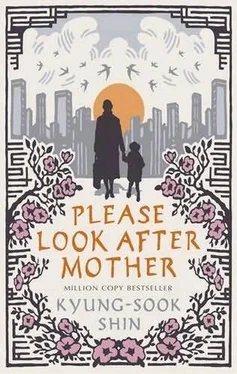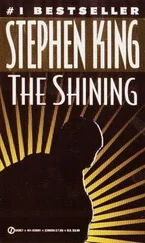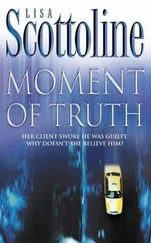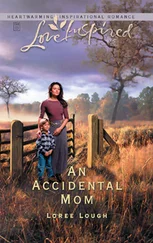“I think it’s over there, brother!”
Sobu Market, which he remembers as being next to a large road, is buried between new boulevards, and he can’t see the signs very well.
“He said it was in front of Sobu Market…” His sister runs toward the entrance and turns around to look at the stores. “There it is!”
He looks where his sister is pointing and sees the sign that says “Sobu Pharmacy,” sandwiched between a snack bar and an Internet café. The bespectacled pharmacist, who is in his mid-fifties, looks up as he and his sister enter. When his sister asks, “You called about the flyer your son had brought you?” the pharmacist takes his glasses off.
“How did your mother happen to go missing?”
This is the most awkward-and frequent-question people have asked since Mom went missing. It’s always asked with a mixture of curiosity and judgment. At first they would explain in detail, “Well, you see, she was at the Seoul Station subway…,” but now they simply reply, “It just happened,” and assume sorrowful expressions. That is the only way they can get past the question.
“Does she have dementia?”
His sister doesn’t reply, so he denies it.
“But how can you be like this when you’re trying to find her? I called a while ago, and you’re only here now?” the pharmacist asks reproachfully, as if they could have been reunited with Mom if they had arrived earlier.
“When did you see her? Does this look like our mom?” His sister pulls out the flyer and points.
The pharmacist says he saw her six days ago. He lives on the third floor of the building, he explains, and he came down at dawn to open the pharmacy’s shutters and saw an old woman sleeping by the garbage cans in front of the snack bar next door. He tells them she was wearing blue plastic sandals. He says she’d walked so much that there was a deep cut on her foot, almost to the point of revealing bone. Her wound had become infected and reinfected, so much so that there was almost nothing that could be done.
“As a pharmacist, I couldn’t just leave her alone when I saw that gash. I thought at the very least it should be disinfected, so I went inside and brought out some disinfectant and cotton balls, and she woke up. Even though a stranger was touching her foot, she stayed still, completely still-weak. With that kind of cut, it’s normal to scream when it’s being treated, but she didn’t react at all. Surprised me. The infection was so severe, pus kept oozing out. The smell was really awful, too. I don’t know how many times I disinfected it. After that I put some ointment on it and a Band-Aid. But it wasn’t big enough, so I wrapped her foot with a bandage. It looked like she should be protected somehow, so I went inside to call the police, but then came back out to ask whether she knew anyone. She was eating sushi rolls from the trash. She must have been hungry. I told her I would give her something to eat and she should throw that away, but she didn’t, so I grabbed it from her and threw it out. Even though she didn’t let go of it when I told her to, she didn’t do anything when I took it away. I asked her to come inside the store. She just sat there, as if she didn’t understand me. Is she deaf?”
His sister is silent, so he denies it.
“I asked her, ‘Where do you live? Do you know someone who can come get you? If you know someone’s number, I’ll call for you.’ But she sat still. Just blinking her eyes. I couldn’t do anything, so I went inside and called the police, and when I came out she was gone. It was strange. I was inside for only a few minutes, and she was already gone.”
“Our mom wasn’t wearing blue plastic sandals,” says Chi-hon. “She was wearing beige sandals. Are you sure they were blue plastic ones?”
“Yes. She was wearing a light-blue shirt, and over it a top that was either white or beige, it was so dirty I couldn’t tell. Her skirt was something that might’ve been white once-but that got dirty enough to become beige. It was pleated. Her calves were bloody. They were… well, they were ravaged by mosquito bites.”
Except for the blue plastic sandals, that’s the outfit Mom was wearing when she went missing.
“Mom’s wearing a hanbok here. Her hair is completely different… She’s really made up in this picture, but she didn’t look like this when she went missing. What made you think of our mother when you saw that lady?” His sister seems to hope it wasn’t Mom; the woman the pharmacist saw was so pathetic.
“This is the same woman. Her eyes are the same. I herded cows when I was young, so I’ve seen eyes like hers, earnest and gentle. I recognized her even though she looked different, because those eyes were the same.”
His sister collapses into a chair.
“Did the police come?”
“I called them right back, told them they didn’t have to come. Like I told you, she was already gone.”
· · ·
He and his sister leave the pharmacy and split up, agreeing to meet at the playground of one of the new apartment complexes in two hours. As the wind picks up, he searches the dimly lit streets around the new apartment buildings that have taken the place of the houses from when he lived here, and his sister looks near Sobu Market, where a few old alleys remain. Because of the pharmacist’s story that the woman who might be Mom was eating sushi rolls out of the trash next to the snack bar, he looks carefully at all of the garbage cans near the buildings. He also searches near the recycling bins. He wonders where the house he used to live in could be. It was the second-to-last house in the longest alley in the neighborhood. The alley was so long and dark that when he came home late from work he felt compelled to keep looking behind him before he reached the gate.
His sister is waiting for him on the wooden bench at the playground. She sees his slumped shoulders and slow footsteps and gets up. Because it’s late at night, there are no children on the playground, only a handful of old folks sitting around, having come out for a walk.
Did Mom come here to that house?
The first time Mom came to visit here, she got off the train holding a nickel kettle as big as a steamer filled with red-bean porridge. He didn’t have a car, and when he took the kettle from her and snapped, “Why did you bring this heavy thing?” Mom just kept smiling. As soon as they turned into the alley, she gestured at a house and asked, “Is this it?” When they walked past it, she pointed at the next house and asked, “Is that it?” She grinned wider when, at last, he stopped in front of his house and announced, “This is it.” Mom looked as excited as a young girl on her first journey out of her hometown as she gently pushed the gate open. “Wow, there’s a yard, too! A persimmon tree, and-what’s this?-grapevines!” As soon as Mom set foot in the house, she poured out a bowl of porridge from the kettle and sprinkled it all around the house. “This is how you ward off bad luck,” she said. His wife, who was also a first-time homeowner in the city, opened the door of one of their three rooms and said, excitedly, “This is your room, Mother. When you come to Seoul, you can stay here in comfort.” Mom looked inside and exclaimed, with an apologetic expression, “I have my own room!”
That night, past midnight, he heard something in the yard and looked out the window. Mom was walking around. She touched the gate and laid a hand on the grapevine and sat on the steps leading to the front door. She looked up at the night sky and went over to stand under the persimmon tree. He opened the window and called to her, “Come in and sleep.”
Mom asked, “Why aren’t you sleeping?” and, acting as if she were calling his name for the first time, said, secretively, “Hyong-chol, come out here.”
Читать дальше











